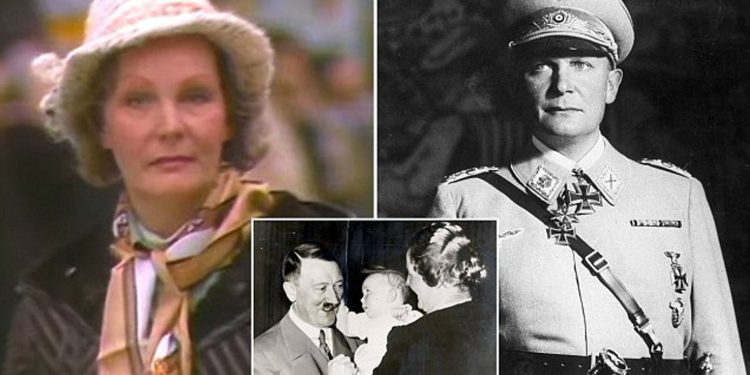New York, March 14: Edda Goering, god-daughter of Adolf Hitler and daughter of leading Nazi official Hermann Goering, has died at the age of 80.
Edda Goering, who defended her father’s legacy for the rest of her life, died December 21 in Munich. She was reportedly buried in secret in an unmarked grave in Munich, Germany.
Goering was born in 1938, the year before World War II began. Her father, Hermann Goering, was a prominent politican and military official, and an early member of Hitler’s Nazi Party. In 1939, Goering was named as Hitler’s successor, given his role as the “most popular of the Nazi leaders, not only with the German people but also with the ambassadors and diplomats of foreign powers,” according to Encyclopedia Brittanica.
Children of Nazi officials can have complicated relationships with their parents. Goering’s feelings for her father, who doted on her, were straightforward.
“I loved him very much, and it was obvious how much he loved me,” she told journalist Gerald Posner for his book “Hitler’s Children: Sons and Daughters of Third Reich Leaders (1991).”
“My only memories of him are such loving ones,” she told Posner in a rare interview, “I cannot see him any other way.” “My father’s problem was his loyalty to Hitler,” she said.
Edda Goering was the daughter of Hermann and his second wife, actress Emmy Sonnemann. She was the only daughter the leader ever fathered, and many considered her birth surprising, given that Hermann was badly injured in the groin in 1923, and his wife was 45 years old when she gave birthAfter World War II, Hermann Goering was convicted of war crimes and sentenced to death. The night his execution was ordered, he committed suicide by poison. Hermann Goering, who was known for his lavish lifestyle, accumulated a vast collection of looted jewelry, furniture and artwork during the war. The German government seized most of his collection — property that Edda Goering said rightfully belonged to her and her mother.
Edda went on to live with her mother in the family’s various estates after the war, and reportedly worked in a hospital clinic. In a petition to a legal committee, she asked for enough of her father’s items back in order to live a “substistence livelihood.” The committee reportedly unanimously denied her request after just a few minutes of deliberation.
Unlike the children of other Nazi officials, Edda rarely spoke about her father.
In a 1989 interview, she did, however, speak of her “very nice early childhood” because of the “love and care of my parents,” according to the Times of Israel. In regard to the “unbelievable thing that happened to the Jews,” she said she felt her father was doing what he thought was best at the time.
Business & Politics
The consequences of mixing business with politics could be devastating. And none should realize this better than Elon Musk, the...
Read more






































